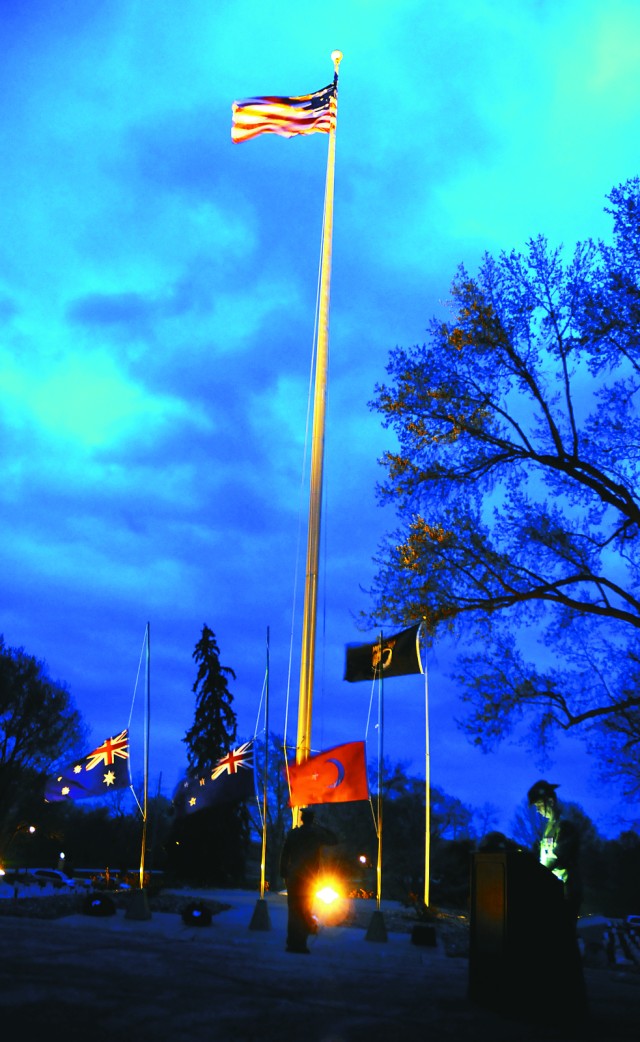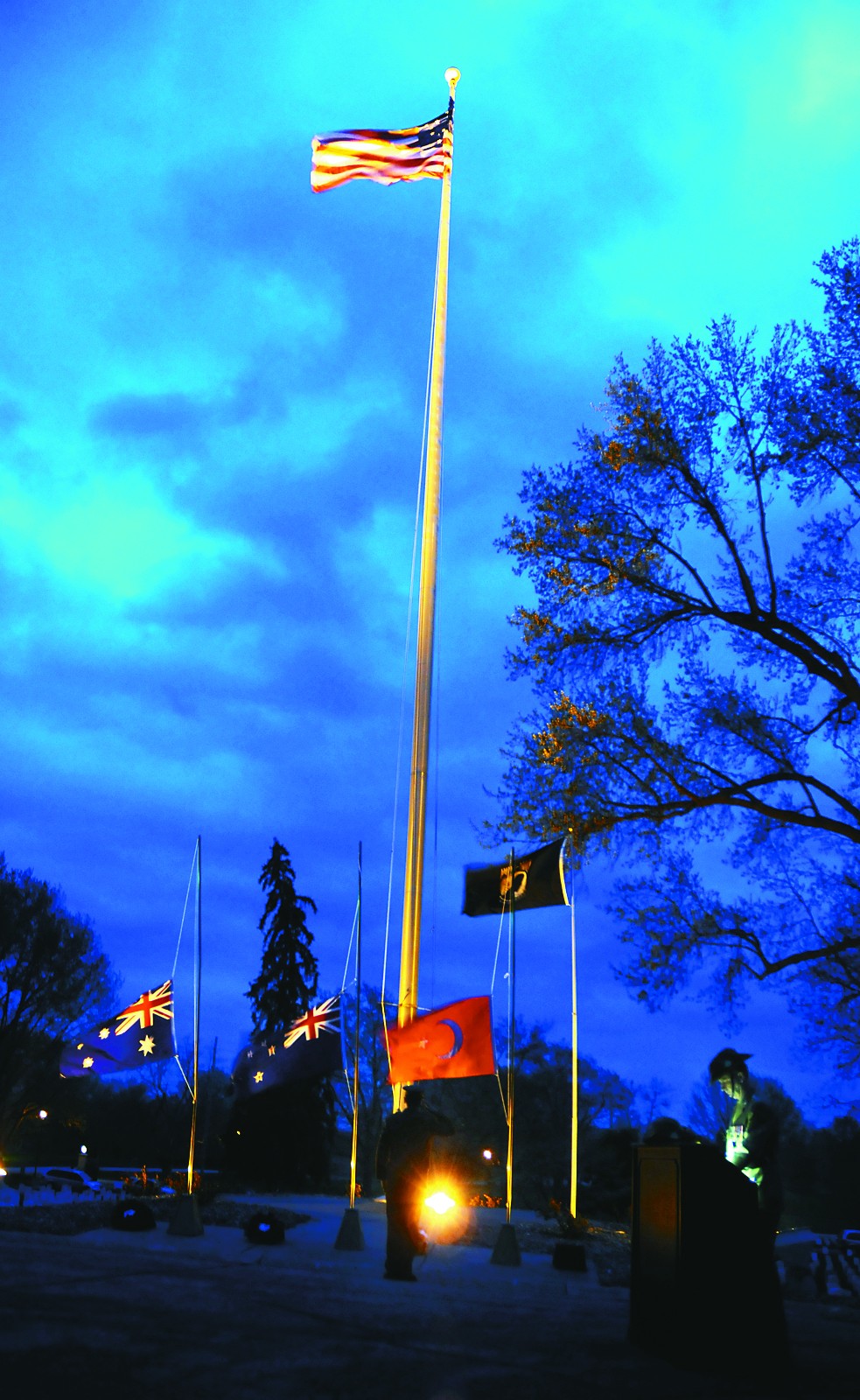FORT LEAVENWORTH, Kan. (April 30, 2009) - It has been almost a century since Australian, New Zealand and Turkish soldiers died on the shores of Gallipoli during World War I. That war ended and alliances formed, but ANZAC Day - Australian and New Zealand Army Corps Day - remains one of the most important ceremonies in each country.
Members of the Fort Leavenworth community joined representatives from those three countries to honor fallen soldiers at a dawn ANZAC Day ceremony April 25.
Lt. Col. Craig Burn, Australian Army liaison officer at the Combined Arms Center, said he and fellow international officers were honored to conduct the ceremony in the Fort Leavenworth National Cemetery.
"We are honored by your presence this morning, and we are equally honored to remember the fallen ANZACs on this historical ground, and amongst the resting souls of so many brave Americans," he told members of the Fort Leavenworth community.
Burn said it was a tradition to hold the ANZAC Day ceremony at the first light of dawn, a favored time to begin historical military attacks.
"After the First World War, returned soldiers sought the comradeship they felt in those quiet, peaceful and reflective moments before dawn," Burn said. "With symbolic links to the dawn landing at Gallipoli, a dawn stand-to ceremony became a common form of ANZAC Day remembrance amongst veterans."
The ceremony was originally intended to honor a military campaign that began April 25, 1915, when the ANZACs landed in Turkey, which was allied with Germany. Turkey fought back, extending the campaign for eight months. Roughly 7,600 Australians and 2,500 New Zealanders were killed and 24,000 were wounded.
Maj. Colin Bassett, Australian student at the Command and General Staff College, said Americans have a hard time understanding why one of Australia's biggest holidays honors one of its biggest military failures. He said throughout the years, ANZAC Day became a symbolic day for all who served their country in military service - equivalent to the U.S. Memorial Day and Veterans Day combined.
Bassett said Australians have a deep, quiet patriotism that isn't always expressed.
"Australians aren't typically patriotic people, they don't wear it on their sleeves," he said. "We don't always show it - but ANZAC Day is the day it sort of comes out."
Maj. Ercan Aslan, a CGSC student from Turkey, said his country lost twice as many soldiers during the ANZAC campaign.
"We fought each other, but after a couple of years, we became friends," he said.
Aslan noted that although their countries once fought each other, the fallen soldiers lay together on his country's soil. ANZAC Day has become important in Turkey as well, with the Turkish government sponsoring a major event every five years on April 25. Thousands of Australians and New Zealanders make the pilgrimage to Turkey to commemorate the event.
Lt. Col. Michael Hanna, Australian exchange instructor at CGSC, delivered the ANZAC Day address.
"As a nation, Australians are very proud of our military heritage," he said.
Hanna said the spirit of ANZAC Day gave birth to a national pride movement.
"It was our country's coming of age, and our national identity was formed," he said.
Maj. Thomas Biedermann and his daughter, Mikaelie, an Eisenhower Elementary School sixth-grader, also participated in the event.
Biedermann works at the National Simulation Center on post. He said that ANZAC Day has seen resurgence in Australia in recent years.
"In Australia, the tradition was sort of dying out a bit in the 1970s and 1980s," he said. "The government and the people of our generation have tried to bring many children back to the ANZAC tradition."
Back home at her school in Australia, Mikaelie would have participated in children's marches and would have had a lead-up classroom study before ANZAC Day.
At the Fort Leavenworth ceremony, after hearing J.M. McCrae's famous poem, "In Flanders Field," Mikaelie read a response poem, "We Shall Keep the Faith," by Moina Michael. Its first stanza reads:
"Oh! you who sleep in Flanders Fields,
Sleep sweet - to rise anew!
We caught the torch you threw
And holding high, we keep the Faith
With All who died.
Representatives of the United Kingdom, Canada, New Zealand, Australia, Turkey and the United States each laid a wreath to honor fallen soldiers. The U.S. flag was then lowered to half-staff in remembrance of Army Pfc. Richard A. Dewater, of Topeka, Kan., killed in Afghanistan April 15.


Social Sharing